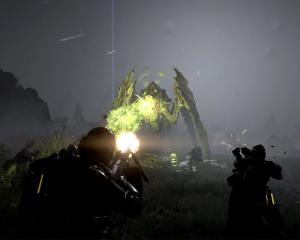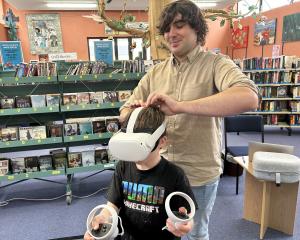
It is crazy to me how long it takes to get online in 2016, when having internet access has become an almost-essential utility, required so that people can stay connected to loved ones, do their jobs, control their finances, and a hundred other everyday tasks.
But a disconnected life is just that wee bit harder if you're into video games. Especially when you get notice that you've been accepted into the three-day Mirror's Edge: Catalyst beta the day you move into your new, Wi-Fi-free house.
Over the course of the weekend I thought about playing Quantum Break and Star Wars Battlefront. Both are no-goes: Battlefront is almost exclusively online, and Quantum Break streams its live action cutscenes.
I get why Battlefront is online, but would it not have been possible to include the live action parts of Quantum Break in the download or on the disc? It would have made the game big and that might mean trouble for console gamers, but single-player campaigns should not require you to be connected.
It could have at least been included as an option. And besides, the PC version still requires a connection, even though gaming PCs tend to have more disk space.
It got me thinking about the price we pay for online gaming. In a couple of days, I'll be back to streaming Netflix and running dungeons in A Realm Reborn.
But if you think about it, Battlefront is a game that I paid full price for, and yet there is no guarantee that I'll still be able to play it in 10 years' time. But it's been nearly 10 years since Mass Effect came out, and if I want to revisit it all I have to do is pop in a disc.
Are we all being taken for a ride here? I mean, I understand that there are many, many games that would not exist, or would be significantly worse, if they were designed for people without internet access.
The internet, and cloud computing, have totally redefined how we interact with the world, and in most cases technological advances have made our everyday lives better and more convenient.
But while we get innovative experiences, but we also have old experiences, like split-screen gaming, removed as a result.
And the fact is that EA can decide at any time that it doesn't feel like paying for servers anymore, and everyone who bought Battlefront is left with a shiny but useless disc (or a defunct download - digital game spend overtook retail spend in 2013).
The industry, of course, is protected from my whinging. When you buy a game, any game, online or no, you aren't actually buying it but licensing it. The publishers retain control over the work but you are able to use it under certain conditions.
This subtle difference was originally designed to stop people from creating copies of artwork (when I was growing up that meant copying cassette tapes), but it also means that companies have no real obligation to continue to give you access to a game you bought.
This has been tested in court - a class action lawsuit was filed against EA for shutting down servers too promptly in 2013, but in 2015 it was ruled that EA had satisfied its end of the bargain because the filer agreed to EA's terms and conditions. EA did, however, agree to give more notice before shutting servers down.
I love online multiplayer, and for a not-insignificant period of time is was the only way I played games.
But I've been unpleasantly surprised by exactly how limited my game collection gets when I don't have internet access, and by how easily I accept this as part of life, right up until I'm disconnected.
- By Siobhan Keogh












